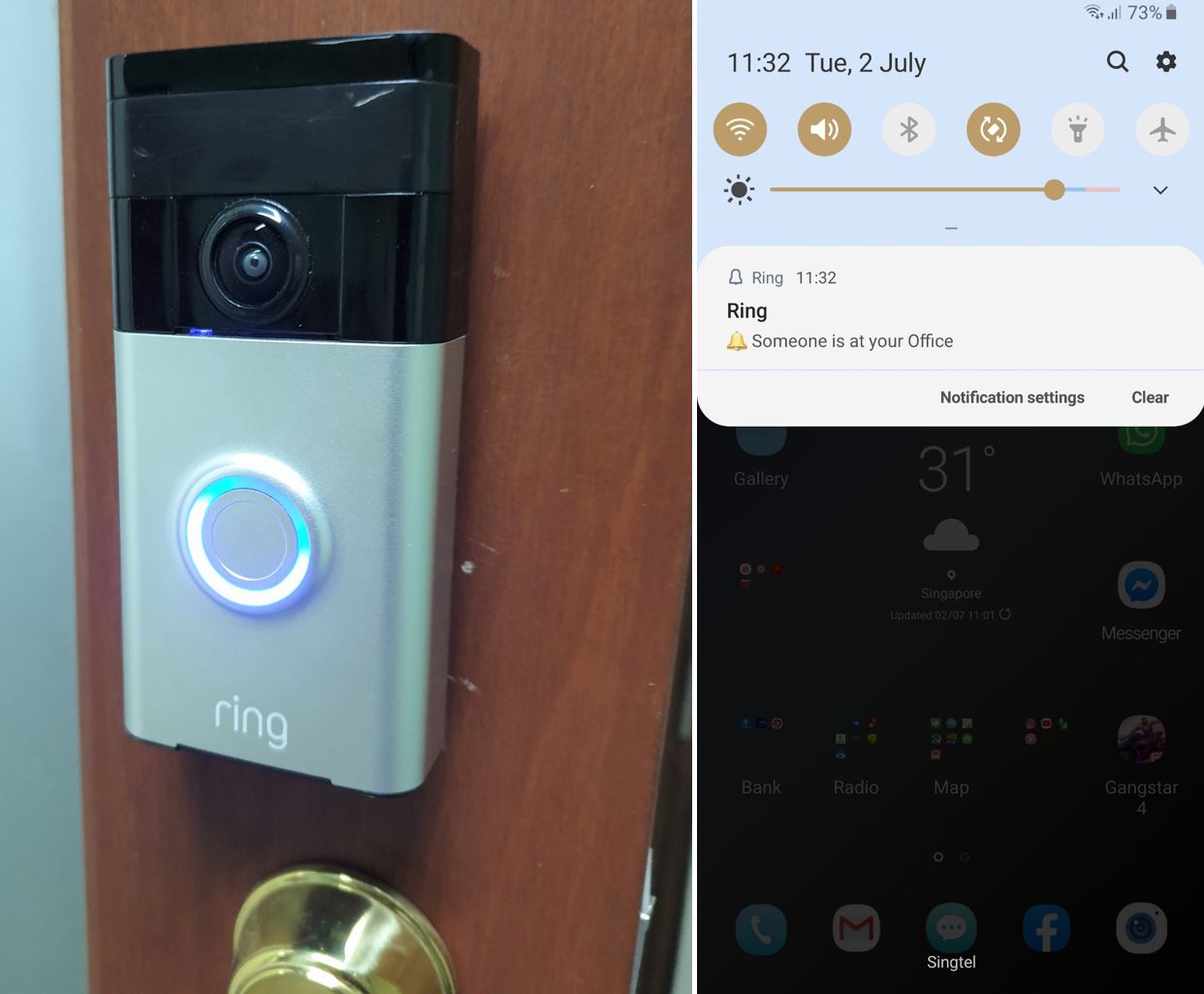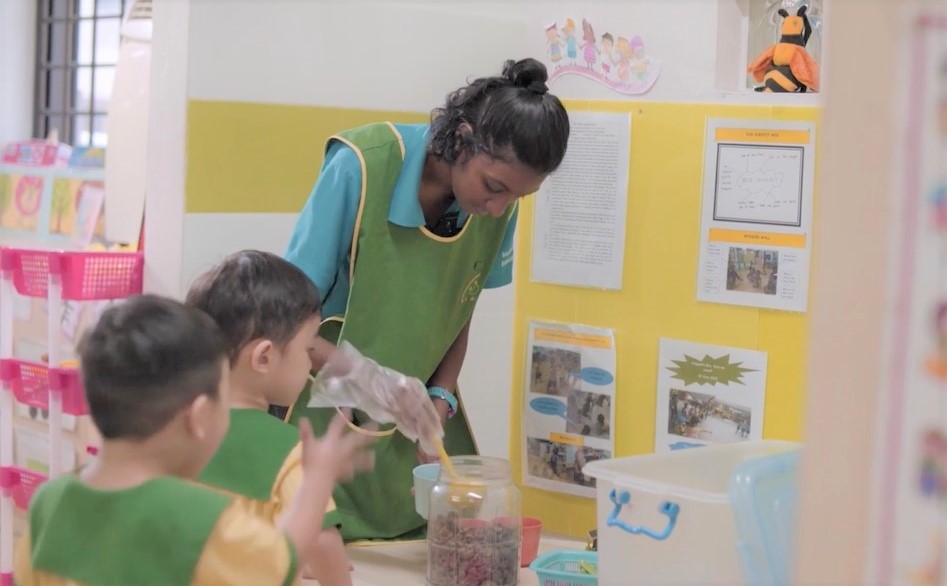You don’t need a lot of time, effort or money to be an inclusive employer. A little thinking outside the box can go a long way – just ask these two organisations that have implemented creative inclusive practices at work.
When it comes to hiring persons with disabilities, sometimes all you need is a little creativity.
REDSOL Pte Ltd and Presbyterian Community Services (PCS) are showing the way forward through innovative projects that enable Singaporeans with disabilities to be more productive and carve out meaningful careers for themselves. Both companies were recognised by SG Enable at the 5th Enabling Employers Awards in July 2019 for their ingenuity and drive to promote inclusiveness in the workforce. Here’s how they did it.
Phone buzzing? Could be the deliveryman
It’s a small hack that has made a big difference.
By simply connecting the company’s doorbell to a smartphone application, e-commerce retailer REDSOL was able to solve a problem for its deaf workers who kept missing the courier when it was time for their goods to be picked up and shipped to customers.

“Before this, our hearing-impaired workers were constantly checking the door to see if the courier was here,” said Mr Amit Chilgunde, REDSOL’s Director.
“Now, since the handphones vibrate, they always know when someone is at the door. The app also has a built-in camera that shows a live feed on the handphone so that they can easily tell who is outside.”It was Amit who actually went online to look for this solution. Previously, he had tried installing strobe lights to the doorbell, but this was not ideal as it still required the employees to look out for the blinking lights, he said. Couriers come to pick up merchandise about four to five times every day.
It was Amit who actually went online to look for this solution. Previously, he had tried installing strobe lights to the doorbell, but this was not ideal as it still required the employees to look out for the blinking lights, he said. Couriers come to pick up merchandise about four to five times every day.
Amit added: “After installing this system, my workers are much more at ease and they can focus on their work without the fear of missing a pick up.”
Along with the app, other enhancements Amit has made include using posters, banners, and other visual aids, as well as putting up writing boards around the office to facilitate communication among his workers. Of the company’s eight full-time employees, five are hearing-impaired.
Amit said he would continue to hire persons with disabilities as he has found most of them to be genuine and dedicated workers. They may take a little bit more time to train, he said, but the investment is worth it. His first hire was made in 2014, and since then, that employee has taken on additional responsibilities – from packing and printing labels, to managing inventory. All of REDSOL’s deaf employees are paid the same as other able-bodied employees, recognising that they can perform just like other workers.
“People with disabilities can definitely contribute to the workforce. We are very fortunate to be in a position to be able to help them, and to give them an equal opportunity at work,” he said.
Training young women to be pre-school teacher assistants
In 2017, Presbyterian Community Services embarked on a pilot project called “A Transdisciplinary Approach to Train Teacher Childcare Aides”. The idea was to take three 16-year-old girls with mild intellectual disability from Grace Orchard School, which is run by PCS, and train them to be pre-school teacher assistants – or “Educarer Aides”. The girls were to be attached to the PCS’ Jurong West Centre for childcare services, and guided by its teachers and trainers there to perform simple tasks, like preparing the children’s milk, or getting them ready for naptime.
The programme comprised modular and on-the-job training, provided and funded by PCS. After two years at Jurong West, they have now been posted to other PCS childcare centres, and talks are underway for them to be hired full-time by another childcare services operator.
The idea came when PCS realised the pre-school sector would be a great alternative vocational pathway for these young girls, said David Lim, PCS’ Executive Director.
“Currently, there is no access to vocational training for girls who are interested in the pre-school sector as the entry requirements to such programmes are too high for them. By doing the training ourselves, we are giving these girls a chance to contribute to society in a meaningful way,” he explained.
Creating the training programme was the first step.
To do that, PCS put together a team that included Dr Esther Joosa, an education consultant formerly with the National Institute of Education who had experience working with persons with disabilities. They then partnered with Grace Orchard School to identify and interview suitable girls for the programme. Next was training the teachers to work with these girls – and also, talking to the parents involved to make sure everyone supported the project.
“It takes a village to raise a child,” said Kanniga, Senior Manager, Capability Support/Special Needs Mentor, who headed the project along with senior trainer Gomathey, and the Jurong West Childcare Centre's principal Wendy Yeo.
“With the trans-disciplinary team involved, as a result, the girls have grown stronger in their soft skills and have become more independent, self-reliant, and confident in their work… They also feel greatly valued and a strong sense of accomplishment,” she added.

In 2018, the project won the Ministry of Education-National Council of Social Service (MOE-NCSS) Innovation Award at the Special Education (SPED) Conference, and so far it looks to be a continued success. Comments were also positive when the project was featured in CNA Insider in September 2019 too.
The three young women, now 18, have become an indispensable part of the team at their respective childcare centres. Three more girls from Grace Orchard School have been selected and are now currently undergoing training, and David said the team has been working on a new training programme for graduates of SPED schools, called Post-18 Educarer Aide Training (P-18-ECAT), to be launched in February next year. The programme is supported by the SG Enable Training Grant, which helps defray training costs of persons with disabilities.
He said: “An opportunity to try is an opportunity to shine. We all have strengths and talents, and it is liberating, encouraging and inspiring to see persons with disabilities discovering what they can be good at, able to make it through training and exposure, and then using these strengths and talents to serve others at the workplace.”
“What we can, and should do, is to keep opening up new pathways where they have such opportunities to shine.”
Are you a Jobseeker, Student, Employer or Training Partner? Find out more about Disability Employment at https://employment.sgenable.sg/ .